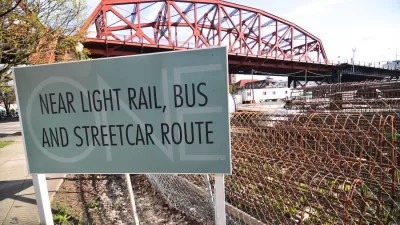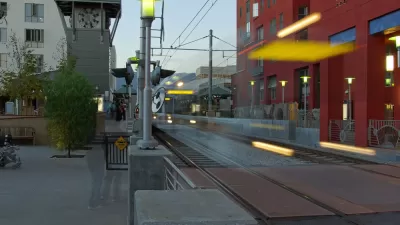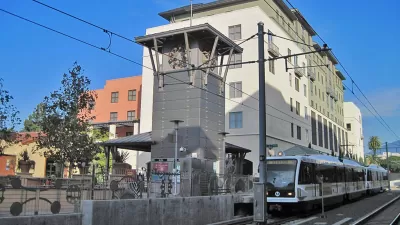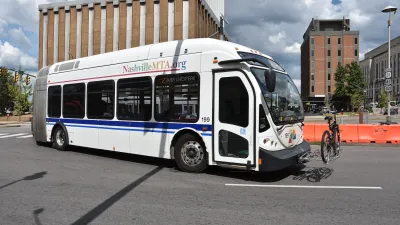This piece from the Vancouver Sun advocates using land value capture taxes to fund transit and related improvements. Such a tax would target speculation, the author writes, rather than productive activity.

In the wake of a local vote against regressive tax hikes to fund transit, Paul Finch considers another way. "Land Value Capture, also known as an Area Benefiting Tax. To translate in plain terms: pay for transit improvements by taxing some of the property appreciation that those improvements produce."
In essence, land value capture would cut into the profits of developers speculating on transit-oriented gentrification. "Public infrastructure causes windfall gains for nearby property owners and developers. We could finance construction through government bonds, then repay those bonds over time with an incrementally higher property tax on nearby developable sites."
Finch argues that taxing higher land values doesn't significantly harm the economy. "Such a scheme has no 'dead weight loss' — that is, unlike income and sales taxes, it doesn't stifle the economy and taxes speculation rather than productive activity."
Transit's critics often deride its tendency to operate in the red, at least as far as fare revenues go. Land value capture has the potential to make transit's beneficiaries pay for what they're getting.
FULL STORY: Opinion: Fund transit by taxing land speculators

Alabama: Trump Terminates Settlements for Black Communities Harmed By Raw Sewage
Trump deemed the landmark civil rights agreement “illegal DEI and environmental justice policy.”

Planetizen Federal Action Tracker
A weekly monitor of how Trump’s orders and actions are impacting planners and planning in America.

The 120 Year Old Tiny Home Villages That Sheltered San Francisco’s Earthquake Refugees
More than a century ago, San Francisco mobilized to house thousands of residents displaced by the 1906 earthquake. Could their strategy offer a model for the present?

In Both Crashes and Crime, Public Transportation is Far Safer than Driving
Contrary to popular assumptions, public transportation has far lower crash and crime rates than automobile travel. For safer communities, improve and encourage transit travel.

Report: Zoning Reforms Should Complement Nashville’s Ambitious Transit Plan
Without reform, restrictive zoning codes will limit the impact of the city’s planned transit expansion and could exclude some of the residents who depend on transit the most.

Judge Orders Release of Frozen IRA, IIJA Funding
The decision is a victory for environmental groups who charged that freezing funds for critical infrastructure and disaster response programs caused “real and irreparable harm” to communities.
Urban Design for Planners 1: Software Tools
This six-course series explores essential urban design concepts using open source software and equips planners with the tools they need to participate fully in the urban design process.
Planning for Universal Design
Learn the tools for implementing Universal Design in planning regulations.
Clanton & Associates, Inc.
Jessamine County Fiscal Court
Institute for Housing and Urban Development Studies (IHS)
City of Grandview
Harvard GSD Executive Education
Toledo-Lucas County Plan Commissions
Salt Lake City
NYU Wagner Graduate School of Public Service





























